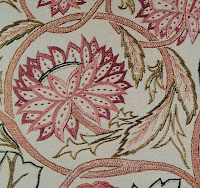
Society for the Promotion of Elegant British Literature
Meeting #2
9 June 2011
Meeting Agenda
A. Eat
B. SPEBL business and proposals
Proposals read by Shelly Rowlan
THE PURPOSE OF PUNCTUATION
"Punctuation has been defined in many ways. Some grammarians use the analogy of stitching: punctuation is the basting that holds the fabric of language in shape. Another writer tells us that punctuation marks are the traffic signals of language: they tell us to slow down, notice this, take a detour, and stop. But best of all, I think, is the simple advice given by the style book of a nation (British) newspaper: that punctuation is "a courtesy designed to help readers to understand a story without stumbling." (Truss, Lynn. Eats, Shoots, Leaves. p.7)
Thus as true SPEBL members-who adore the etiquette and dement of 19th century British society-I think it is only appropriate that we also indoctrinate ourselves in the good manner of punctuation. As we know truly good manners are invisible: they ease the way for others, without drawing attention to themselves.
You may wonder why punctuation would be a critical topic at a SPEBL meeting. Because, my fellow, SPEBLs, there are often devastating consequences of mispunctuating that be truly frightening. Take for instance this popular example:
A woman, without her man, is nothing.
A woman: without her, man is nothing.
Makes you think doesn't it? Can you see the power of punctuation to guide and influence the mind? Yes punctuation is a powerful tool, my friend. One that as SPEBL members I propose we own and hone. And, specifically that we focus our efforts on apostrophes.
PROPOSAL #1
I propose that as members of SPEBL we support the Apostrophe Protection Society (a British organization) by linking it to our Facebook page and requiring each member to take the Apostrophe Tutorial. (Sidenote: This tutorial is read by a man with a delightful British accent. It's worthy of SPEBL time on that merit alone.)
PROPOSAL #2
I propose that we become Apostrophe Protection Society vigilantes. I recommend we acquire-through purchase or Krista's crafting skills-a secret apostrophe button or bracelet or tattoo. That we can flash with pride when meeting another Apostrophe Vigilante. We will be the secret militant wing protecting the perfect utilization of the apostrophe.
However, these proposals are issued with a warning: You must realize that no one understands an Apostrophe Vigilante. Society, in general, regards them as freaks. When acting as a vigilante and pointing out gross punctuation errors, be prepared to be aggressively instructed to "get a life" by people who, interestingly, and obviously, display no evidence of having lives themselves. It may be natural to become timid about making your insights known, in such inhospitable conditions, but remember that no true revolutionary went without some public ridicule. (Of course, I refer you to lives and stories of such examples as Martin Luther King and King Julian.) Just remember that someday people may recognize the incredible contribution we made to society, but it won't be this day.
What happened to punctuation? Was it laziness? Was it a poor education system? (I tread lightly here knowing that a former Teacher of the Year is within our ranks.) Or was it simply the arrival of texting? because, let's be honest--- it is time-consuming going through the little punctuation menu. However, as true SPEBLs, I propose we TAKE the time to not only learn our own punctuation menus, but correct those incoming texts as they lack proper etiquette- they are destroying, single-handedly, one message at a time, the British language!! If punctuation is stitching of language, then our language is coming apart and all the buttons are falling off. And that's where we have to draw the line because it is now neither literature nor elegant.
WHY PUNCTUATION IS WORTH IT
The reason it's worth standing up for punctuation is not that it's an arbitrary system of notation known only to an over-sensitive (and Jane Austen loving) elite. The reason, the real reason, to stand up for punctuation, the reason we all need to make a stand up for punctuation, the reason we all need to make a stand on tonight, throw our entire selves into the melee for, is that without punctuation there is no reliable way of communication meaning.
Punctuation herds words together, keeps others apart. Punctuation directs you to read, the way musical notations directs a musician how to play. The sheer beauty of these seemingly inconsequential mark should evoke a gasp of wonder. We must be staunch because we understand what is at stake here; but we must also be flexible because rationally we know we are entering deeply into nerdish behaviors. Nevertheless, clarity is our goal- as it wields the sword with the sharpest edge.
So what I propose is action: SPEBLs UNITE! As one of the powerful organizations for British literature in the Phoenix Metro area, we have nothing to lose but our sense of proportion, and arguably a lot of friends. But at least we can unleash the literary master within each of us that is so evoked by the brilliant literature of Jane Austen (a perfect punctuator), Elizabeth Gaskell, Charlotte Bronte, etc. Of course this will require that we adopt a zero tolerance approach, when you see a banner advertising, "CD's, DVD's, Video's and Book's" do not just stand indoors getting depressed about it. Act! Engage in some direct action! Scribble out the apostrophe, write a letter to the store owner, start a picket line because after tonight, my friend, the important thing to remember is you won't be alone. And who knows what together we might accomplish?
PROPOSAL #3
Next meeting we each share an experience we had being Apostrophe Vigilante. I think this could be both cathartic and uniting. Feel free to express the suffering and turmoil as well as the insights and motivation for being an Apostrophe Vigilante. If all goes well, we can discuss the next level of mastery-commas.
Call for Approval of said proposals by founder Ashley Perkins
Approval of Proposal #1 and Proposal #2 & #3 will be readdressed at the next SPEBL meeting.
C. Other Business?
None
D. Viewing: "Under the Greenwood Tree"
E. Discussion of said movie
Loved by everyone. Dick Dewey acknowledged as very handsome. Movie seemed very daring, showing of arms, hands being washed in same basin, her proposal of marriage at end. One problem: What happened under the greenwood tree?
During the movie, several ideas were presented to be further activities and things to be discussed to everyone's understanding.
Goal before the next meeting taking the Apostrophe Tutorial, as now required by all SPEBL members.











